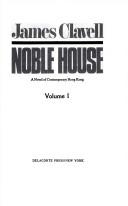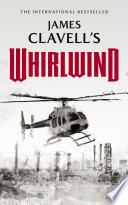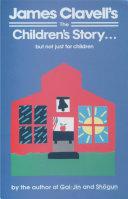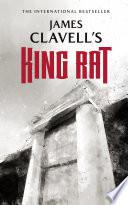Works

Noble House
James Clavell
Whirlwind
James ClavellFamous James Clavell Quotes
“There is no dignity for either the sufferer or the torturer”
Source: Shogun
James Clavell Quotes about life
“Only by living at the edge of death can you understand the indescribable joy of life.”
Source: Shōgun (1975), Ch. 56
“What are clouds, but an excuse for the sky? What is life, but an escape from death?”
Yabu-san's death poem after being ordered to commit seppuku.
Shōgun (1975)
Noble House (1981)
Context: "Changi changed everyone, changed values permanently. For instance, it gave you a dullness about death — we saw too much of it to have the same sort of meaning to outsiders, to normal people. We are a generation of dinosaurs, we the few who survived. I suppose anyone who goes to war, any war, sees life with different eyes if they end up in one piece."
What did you see?"
"A lot of bull that's worshipped as the be-all and end-all of existence. So much of 'normal, civilized' life is bull that you can't imagine. … What frightens you, doesn't frighten me, what frightens me, you'd laugh at."
James Clavell Quotes about God
“God gives us intelligence to uncover the wonders of nature. Without the gift, nothing is possible.”
André Delambre
The Fly (1958)
“God bless mommy and daddy, and please can we have some candy.”
"Teacher" leading the class in prayer.
The Children's Story (1982)
"Teacher"
The Children's Story (1982)
Context: Maybe we didn't pray hard enough. Perhaps we should kneel down like is done in church. Perhaps were using the wrong name. Instead of God, let's say "Our Leader." Let's pray to our leader for candy! Let's pray extra specially hard, and don't open your eyes until I say.
"Teacher"
The Children's Story (1982)
James Clavell: Trending quotes
“I can transport matter — anything — at the speed of light, perfectly.”
André Delambre (David Hedison) to his wife Hélène
The Fly (1958)
Context: I can transport matter — anything — at the speed of light, perfectly. Of course this is only a crude beginning, but I've stumbled on the most important discovery since man sawed off the end of a tree trunk and found the wheel. The disintegrator-integrator will change life as we know it. Think what it means. Anything, even humans, will go through one of these devices. No need for cars or railways or airplanes, even spaceships. We'll set up matter-receiving stations throughout the world, and later the universe. There'll never be famine. Surpluses can be sent instantaneously at almost no cost, anywhere. Humanity need never want or fear again. I'm a very fortunate man, Hélène.
Prologue
King Rat (1962)
Context: Changi was set like a pearl on the eastern tip of Singapore Island, iridescent under the bowl of tropical skies. It stood on a slight rise and around it was a belt of green, and farther off the green gave way to the blue-green seas and the seas to infinity of horizon.
Closer, Changi lost its beauty and became what it was — an obscene forbidding prison. Cellblocks surrounded by sun-baked courtyards surrounded by towering walls.
Inside the walls, inside the cellblocks, story on story, were cells for two thousand prisoners at capacity. Now, in the cells and in the passageways and in every nook and cranny lived some eight thousand men....
These men too were criminals. Their crime was vast. They had lost a war. And they had lived.
Noble House (1981)
Context: "Changi changed everyone, changed values permanently. For instance, it gave you a dullness about death — we saw too much of it to have the same sort of meaning to outsiders, to normal people. We are a generation of dinosaurs, we the few who survived. I suppose anyone who goes to war, any war, sees life with different eyes if they end up in one piece."
What did you see?"
"A lot of bull that's worshipped as the be-all and end-all of existence. So much of 'normal, civilized' life is bull that you can't imagine. … What frightens you, doesn't frighten me, what frightens me, you'd laugh at."
James Clavell Quotes
“These men too were criminals. Their crime was vast. They had lost a war. And they had lived.”
Prologue
King Rat (1962)
Context: Changi was set like a pearl on the eastern tip of Singapore Island, iridescent under the bowl of tropical skies. It stood on a slight rise and around it was a belt of green, and farther off the green gave way to the blue-green seas and the seas to infinity of horizon.
Closer, Changi lost its beauty and became what it was — an obscene forbidding prison. Cellblocks surrounded by sun-baked courtyards surrounded by towering walls.
Inside the walls, inside the cellblocks, story on story, were cells for two thousand prisoners at capacity. Now, in the cells and in the passageways and in every nook and cranny lived some eight thousand men....
These men too were criminals. Their crime was vast. They had lost a war. And they had lived.
As quoted in "James Clavell, Best-Selling Storyteller of Far Eastern Epics, Is Dead at 69" by William Grimes in The New York Times (8 September 1994) http://query.nytimes.com/gst/fullpage.html?res=9D03E4D61138F93BA3575AC0A962958260&sec=&spon=&pagewanted=all
Context: Changi became my university instead of my prison. … Among the inmates there were experts in all walks of life — the high and the low roads. I studied and absorbed everything I could from physics to counterfeiting, but most of all I learned the art of surviving.
“Closer, Changi lost its beauty and became what it was — an obscene forbidding prison.”
Prologue
King Rat (1962)
Context: Changi was set like a pearl on the eastern tip of Singapore Island, iridescent under the bowl of tropical skies. It stood on a slight rise and around it was a belt of green, and farther off the green gave way to the blue-green seas and the seas to infinity of horizon.
Closer, Changi lost its beauty and became what it was — an obscene forbidding prison. Cellblocks surrounded by sun-baked courtyards surrounded by towering walls.
Inside the walls, inside the cellblocks, story on story, were cells for two thousand prisoners at capacity. Now, in the cells and in the passageways and in every nook and cranny lived some eight thousand men....
These men too were criminals. Their crime was vast. They had lost a war. And they had lived.
Afterword to his short story "The Children's Story" (1963).
The Children's Story (1982)
Context: I asked all kinds of people of every age, "You know the 'I pledge allegiance…'" but before I could finish, at once they would all parrot it, the words almost always equally blurred. In every case discovered that not one teacher, ever — or anyone — had ever explained the words to any one of them. Everyone just had to learn it to say it. The Children's Story came into being that day. It was then that I realized how completely vulnerable my child's mind was — any mind for that matter — under controlled circumstances. Normally I write and rewrite and re-rewrite, but this story came quickly — almost by itself. Barely three words were changed. It pleases me greatly because it keeps asking me questions … Questions like what's the use of "I pledge allegiance" without understanding? Like why is it so easy to divert thoughts and implant others? Like what is freedom and why is it so hard to explain? The Children's Story keeps asking me all sorts of questions I cannot answer. Perhaps you can — then your children will…
Afterword to his short story "The Children's Story" (1963).
The Children's Story (1982)
Context: I asked all kinds of people of every age, "You know the 'I pledge allegiance…'" but before I could finish, at once they would all parrot it, the words almost always equally blurred. In every case discovered that not one teacher, ever — or anyone — had ever explained the words to any one of them. Everyone just had to learn it to say it. The Children's Story came into being that day. It was then that I realized how completely vulnerable my child's mind was — any mind for that matter — under controlled circumstances. Normally I write and rewrite and re-rewrite, but this story came quickly — almost by itself. Barely three words were changed. It pleases me greatly because it keeps asking me questions … Questions like what's the use of "I pledge allegiance" without understanding? Like why is it so easy to divert thoughts and implant others? Like what is freedom and why is it so hard to explain? The Children's Story keeps asking me all sorts of questions I cannot answer. Perhaps you can — then your children will…
“Blackthorne was suddenly awake.”
First lines, Ch. 1
Shōgun (1975)
Context: Blackthorne was suddenly awake. For a moment he thought he was dreaming because he was ashore and the room unbelievable. It was small and very clean and covered with soft mats. He was lying on a thick quilt and another was thrown over him. The ceiling was polished cedar and the walls were lathes of cedar, in squares, covered with an opaque paper that muted the light pleasantly. Beside him was a scarlet tray bearing small bowls. One contained cold cooked vegetables and he wolfed them, hardly noticing the piquant taste. Another contained a fish soup and he drained that. Another was filled with a thick porridge of wheat or barley and he finished it quickly, eating with his fingers. The water in an odd-shaped gourd was warm and tasted curious — slightly bitter but savory.
Then he noticed the crucifix in its niche.
This house is Spanish or Portuguese, he thought aghast. Is this the Japans? or Cathay?
“It pleases me greatly because it keeps asking me questions …”
Afterword to his short story "The Children's Story" (1963).
The Children's Story (1982)
Context: I asked all kinds of people of every age, "You know the 'I pledge allegiance…'" but before I could finish, at once they would all parrot it, the words almost always equally blurred. In every case discovered that not one teacher, ever — or anyone — had ever explained the words to any one of them. Everyone just had to learn it to say it. The Children's Story came into being that day. It was then that I realized how completely vulnerable my child's mind was — any mind for that matter — under controlled circumstances. Normally I write and rewrite and re-rewrite, but this story came quickly — almost by itself. Barely three words were changed. It pleases me greatly because it keeps asking me questions … Questions like what's the use of "I pledge allegiance" without understanding? Like why is it so easy to divert thoughts and implant others? Like what is freedom and why is it so hard to explain? The Children's Story keeps asking me all sorts of questions I cannot answer. Perhaps you can — then your children will…
“Grey was not alone in his hatred. The whole of Changi hated King.”
Part 1, Ch. 1.
King Rat (1962)
Context: Grey was not alone in his hatred. The whole of Changi hated King. They hated him for his muscular body, the clear glow in his blue eyes. In the twilight world of the half alive there were no fat or well-built or round or smooth or fair-built or thick-built men. There were only faces dominated by eyes and set on bodies that were skin over sinews and bones. No difference between them but age and face and height. And in all this world, only the King ate like a man, smoked like a man, slept like a man, dreamed like a man and looked like a man.
“It is a very pretty flag. … I wish I could have a piece of it.”
"Teacher"
The Children's Story (1982)
Context: It is a very pretty flag. … I wish I could have a piece of it. I know! If it's so important, I think we should all have a piece of it. Don't you? … Now we should decide — who should be allowed to cut the first piece off!
Hélène Delambre
The Fly (1958)
Context: I get so scared sometimes. The suddenness of our age! Electronics, rockets, earth satellites, supersonic flight, and now this. It's not so much who invents them. It's the fact they exist. … Everything's going so fast, I'm just not ready to take it all in. It's, it's all so quick
“For Those Who Were There And Are Not.For Those Who Were There And Are For Him. But Most, For Her.”
Dedication
King Rat (1962)
Interview with Don Swaim (1986)
Context: I write short stories. They may appear big in size, but when you consider it, they're four or five novels in one. … In return for picking up one of my books, I'm trying to give them value for their money. … the goal of writing any book is to create the illusion that what you are reading is reality and you're part of it.
“What can I do to help thee?" he asked.
"Believe there is a tomorrow.”
Source: Shōgun
Source: Shōgun
"Teacher" to Johnny
The Children's Story (1982)
On his experience as a POW in Changi Prison on Singapore, which became the subject of his novel King Rat
Interview with Don Swaim (1986)
“The more I know, the more sure I am I know so little. The eternal paradox.”
André Delambre
The Fly (1958)
“I'm going to pray to our leader every time!”
Child
The Children's Story (1982)
Source: Shōgun (1975), Ch. 43
“Perhaps my mommy should go back to school. Perhaps she should.”
Child
The Children's Story (1982)
“The search for the truth is the most important work in the whole world — and the most dangerous.”
François Delambre (Vincent Price) to André's son, Philippe.
The Fly (1958)
Interview with Don Swaim (1986)
Interview with Don Swaim (1986)
"Teacher"
The Children's Story (1982)
“Just a moment, children — what does "pledge" mean?”
"Teacher" (played by Jame's Clavell's daughter Michaela Clavell, credited as Michaela Ross).
The Children's Story (1982)
“I'm going to get that bloody bastard if I die in the attempt.”
Part 1, Ch. 1, Lt. Grey, First line of the story.
King Rat (1962)
Source: Shōgun (1975), Ch. 5
Part 1, Ch. 1
King Rat (1962)
“Help! Help me! Please help me! Help me!”
The human-headed fly, as the spider approaches it.
The Fly (1958)

